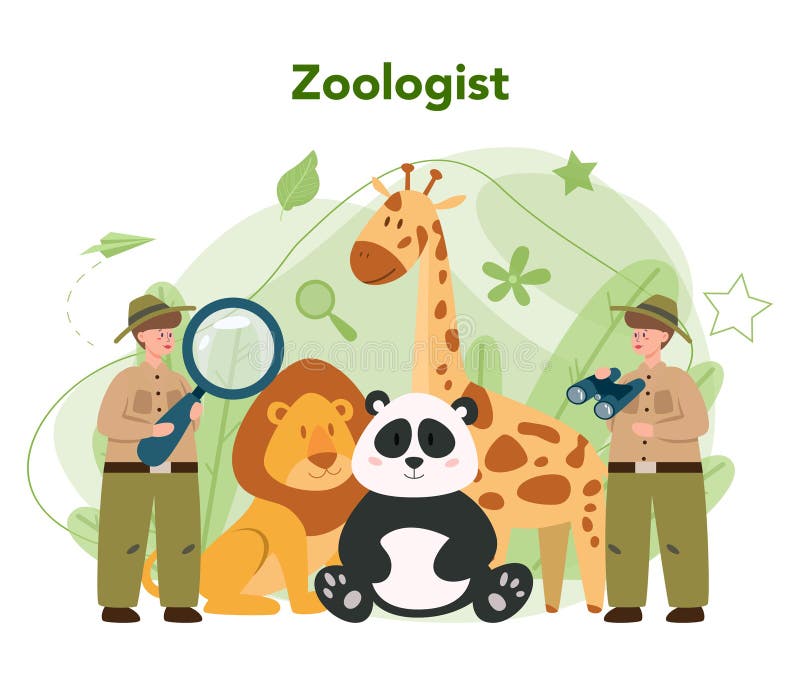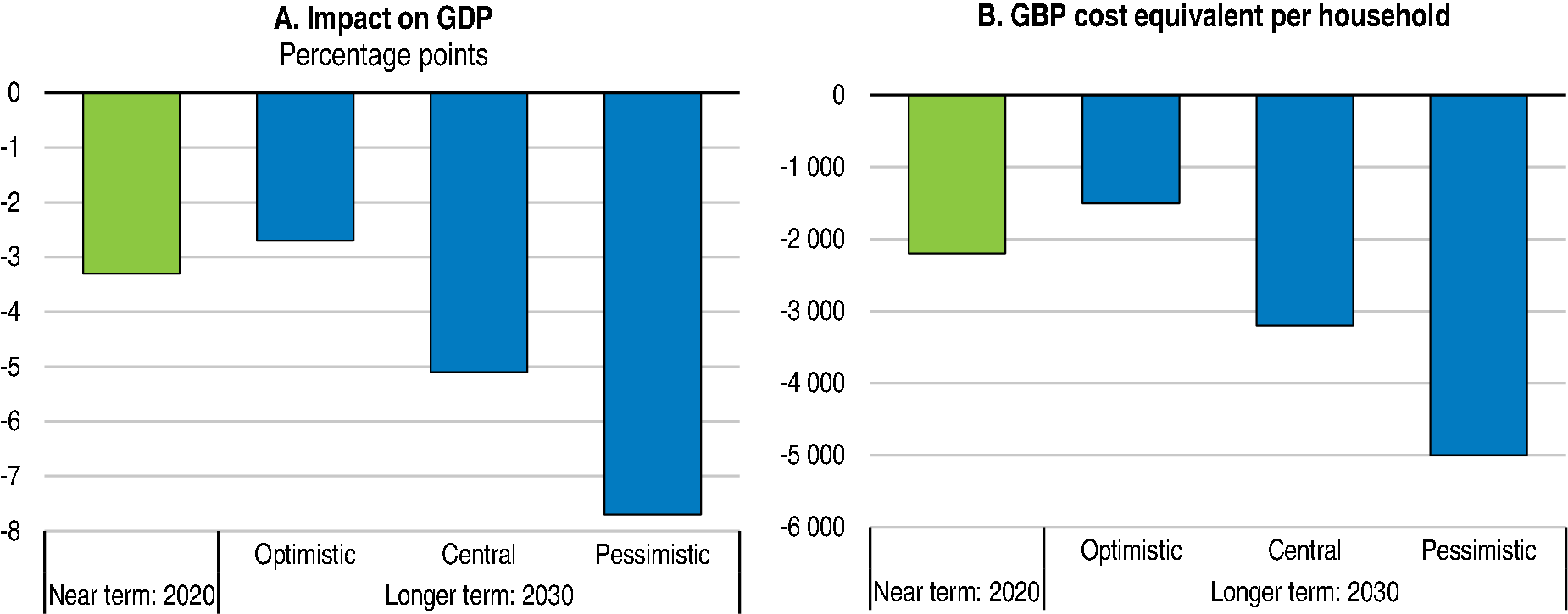FTC Probe Into OpenAI And ChatGPT: Implications For AI Development And Regulation

Table of Contents
The FTC's Concerns Regarding ChatGPT and OpenAI
The FTC's investigation into OpenAI likely stems from concerns across several critical areas related to ChatGPT's functionality and OpenAI's practices.
Data Privacy and Security
The vast amounts of personal data used to train ChatGPT are a major source of concern for the FTC. The investigation could heavily focus on OpenAI's adherence to existing data privacy regulations.
- Compliance with COPPA and GDPR: The FTC will likely scrutinize OpenAI's compliance with the Children's Online Privacy Protection Act (COPPA) and the General Data Protection Regulation (GDPR), particularly regarding the handling of children's data and the rights of EU citizens.
- Bias and Discrimination in Training Data: Concerns exist about the potential for biased or discriminatory outputs from ChatGPT, stemming from biases present in the massive datasets used for its training. The FTC's investigation will likely examine the methods used to mitigate these biases.
- Transparency in Data Collection and Usage: A lack of transparency in how OpenAI collects, uses, and protects user data is another area of concern. The FTC may investigate whether OpenAI provides adequate notice and obtains meaningful consent for data collection.
Misinformation and Harmful Content
ChatGPT's capacity to generate convincing yet entirely fabricated information poses a significant risk. The FTC's investigation will likely examine OpenAI's efforts (or lack thereof) to prevent the spread of misinformation.
- Mitigating Misinformation: The FTC's probe will likely examine the mechanisms OpenAI has implemented to detect and prevent the generation of false information. This includes evaluating the effectiveness of current safeguards and exploring the need for more robust fact-checking mechanisms.
- Malicious Use of ChatGPT: The potential for malicious actors to use ChatGPT for nefarious purposes, such as creating deepfakes or spreading propaganda, is a major concern. The investigation may explore OpenAI's responsibility in preventing such misuse.
- Lack of Fact-Checking Mechanisms: The absence of built-in, reliable fact-checking within ChatGPT is a significant vulnerability. The FTC will likely assess OpenAI's plans to address this critical flaw.
Consumer Protection
The FTC's mandate includes safeguarding consumers from unfair or deceptive business practices. The investigation into OpenAI and ChatGPT will likely assess whether OpenAI adequately informs users about the technology's limitations and potential risks.
- Disclosure of Limitations and Risks: The FTC may investigate whether OpenAI clearly discloses the inherent limitations and potential risks associated with using ChatGPT, ensuring users understand the technology's capabilities and shortcomings.
- Harm Caused by Inaccurate Information: A key aspect of the FTC's investigation will likely focus on the potential for harm caused by inaccurate or misleading information generated by ChatGPT. This includes assessing the impact on individuals and society.
- Potential for Financial Exploitation: The FTC may also investigate the potential for financial exploitation resulting from the misuse of ChatGPT, such as scams or fraudulent activities facilitated by the technology.
Implications for AI Development
The FTC probe into OpenAI and ChatGPT has significant implications for the future of AI development, particularly regarding regulatory scrutiny and ethical considerations.
Increased Scrutiny and Regulation
The FTC's action signals a likely increase in regulatory scrutiny for all AI companies, not just OpenAI.
- Stricter Guidelines for Data Handling: Expect stricter guidelines and regulations regarding data handling, model transparency, and robust safety testing for AI systems.
- Industry-Wide Standards for Responsible AI: The investigation may spur the development of industry-wide standards and best practices for responsible AI development.
- Increased Costs for Smaller AI Companies: Increased legal and compliance costs associated with stricter regulations could disproportionately impact smaller AI companies, potentially hindering innovation.
Shift Towards Responsible AI Development
The FTC probe is likely to accelerate the shift towards prioritizing ethical considerations in AI development.
- Emphasis on Fairness, Accountability, and Transparency: A greater emphasis on fairness, accountability, and transparency in AI systems will likely become the norm.
- Increased Investment in AI Safety Research: The FTC’s actions could stimulate further investment in AI safety and security research.
- Robust AI Governance Frameworks: The development of more comprehensive and robust AI governance frameworks is highly probable as a consequence of this investigation.
Implications for AI Regulation
The FTC's investigation highlights the urgent need for comprehensive and forward-thinking AI legislation.
Need for Comprehensive AI Legislation
Current regulations may be inadequate to address the unique challenges posed by advanced AI technologies like ChatGPT.
- Addressing Gaps in Current Regulations: The investigation underscores the need to update or create new legislation that specifically addresses AI's unique challenges, such as data privacy in large language models and the potential for algorithmic bias.
- Clearer Guidelines for AI Safety and Transparency: New legislation should establish clearer guidelines for data privacy, algorithmic transparency, and AI safety standards.
- International Cooperation on AI Regulation: Effective oversight will necessitate international cooperation and harmonization of AI regulations to prevent regulatory arbitrage.
Balancing Innovation and Regulation
The critical challenge lies in finding a balance between fostering innovation and implementing effective regulations.
- Avoiding Stifling Innovation: Overly strict regulations could hinder innovation, while insufficient regulation could lead to significant harms.
- Influence on Other Regulatory Bodies: The FTC's actions will significantly influence how other regulatory bodies worldwide approach the oversight of AI technologies.
- Careful Consideration of Ethical, Economic, and Societal Implications: Creating a suitable framework for AI governance requires careful consideration of the ethical, economic, and societal implications.
Conclusion
The FTC Probe into OpenAI and ChatGPT serves as a crucial wake-up call for the AI industry. The implications are far-reaching, impacting not only OpenAI's development practices but the entire AI development and regulation landscape. This investigation underscores the urgent need for responsible AI development and comprehensive legislation to address the complex ethical, legal, and societal challenges posed by this rapidly evolving technology. Understanding the ramifications of this FTC Probe into OpenAI and ChatGPT is vital for all stakeholders in the AI ecosystem. Stay informed about the evolving legal landscape surrounding AI and proactively engage in discussions on ethical AI development to shape a future where innovation and responsibility coexist.

Featured Posts
-
 Ac Milan Atalanta Guia Completa Para Ver El Partido De Gimenez
May 13, 2025
Ac Milan Atalanta Guia Completa Para Ver El Partido De Gimenez
May 13, 2025 -
 Cassie Ventura And Alex Fines First Red Carpet Appearance As Expectant Parents
May 13, 2025
Cassie Ventura And Alex Fines First Red Carpet Appearance As Expectant Parents
May 13, 2025 -
 Animal Wonders Exploring The Planets Diverse Fauna
May 13, 2025
Animal Wonders Exploring The Planets Diverse Fauna
May 13, 2025 -
 Economic Fallout From Brexit A Crisis For Spanish Border Towns
May 13, 2025
Economic Fallout From Brexit A Crisis For Spanish Border Towns
May 13, 2025 -
 Brexits Impact Spanish Border Towns Struggle Economically
May 13, 2025
Brexits Impact Spanish Border Towns Struggle Economically
May 13, 2025
Latest Posts
-
 Italian Open Sinner Reaches Last 16 Osaka Defeated
May 14, 2025
Italian Open Sinner Reaches Last 16 Osaka Defeated
May 14, 2025 -
 Wta Roundup No 3 Seed Stearns Eliminated In Austin
May 14, 2025
Wta Roundup No 3 Seed Stearns Eliminated In Austin
May 14, 2025 -
 Swiateks Ranking Plummets Following Rome Loss To Collins
May 14, 2025
Swiateks Ranking Plummets Following Rome Loss To Collins
May 14, 2025 -
 Collins Upsets Swiatek In Rome Impacting World Rankings
May 14, 2025
Collins Upsets Swiatek In Rome Impacting World Rankings
May 14, 2025 -
 Swiatek Out Of World No 2 Spot After Collins Loss In Rome
May 14, 2025
Swiatek Out Of World No 2 Spot After Collins Loss In Rome
May 14, 2025
